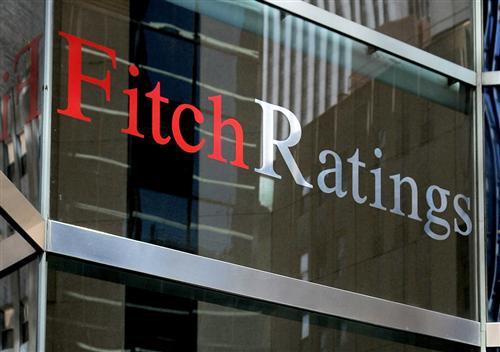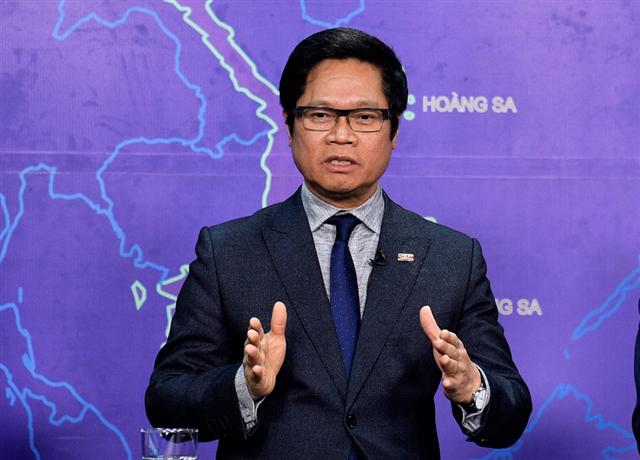Invigorating investors with PPP draft
Invigorating investors with PPP draft
The Ministry of Planning and Investment has released the latest draft Law on Public-Private Partnerships in a move to make a fresh shift towards a specific and consolidated framework for bankable projects. Vaibhav Saxena and Nguyen Thi Phuong, lawyers at Vietnam International Law Firm, delve into how the new regulations in the draft law can make a positive impact on investors.

Vaibhav Saxena and Nguyen Thi Phuong, lawyers at Vietnam International Law Firm
|
The draft Law on Public-Private Partnerships (PPP) contemplates permitting a PPP structure mainly in the sectors of transportation, power plants and the grid, water utility supply, drainage and wastewater treatment, offices for state authorities, healthcare, education and training, and IT infrastructure.
Under the draft law on PPP, the minimum investment capital of a related venture is marked at VND200 billion ($8.7 million) excluding the case of an operations and management agreement project. According to the Ministry of Planning and Investment (MPI), requirements on the minimum of total investment capital for PPP projects is necessary for the selection of worthy schemes for investment in such form as such contracts are normally long-term ones that necessitate numerous governmental commitments.
In addition, for each of the aforementioned sectors, the government will issue the minimum investment capital requirement under a specific social-economic strategy. Hence, this condition would prevent thinned-out investment leading to low investment efficiency.
This provision raises the question of how projects under VND200 billion ($8.7 million approx.) can be implemented in the form of PPP. In reality the proportion of such ventures falling below the cut-off is significantly low (about 30 per cent, according to MPI data).
However, many small-scale projects in health, science and technology, environmental protection, and education with total investment below VND200 billion ($8.7 million) – but which still fall in the category of sectors which be considered necessary to the society and required private investment – should also have a legal basis to be considered as a PPP initiative.
According to the government, the private investment in those small-scale projects are already governed by Decree No.69/2008/ND-CP and Decree No.59/2014/ND-CP on encouraging privatisation in certain sectors. However, the draft also acknowledges such privatisation regulations are not comprehensive that contain merely investment incentives. The government may consider issuing a guiding decree of PPP law with similar regulations but simpler than the law for such small-scale ventures, or amending and supplementing the decrees.
Applicable laws
As stipulated in Article 3 of the draft law, the investment activities in the form of PPP must comply with the provisions of the related law and other relevant laws.
The draft PPP law stipulates the predominance of it against other relevant laws, in case there is a conflict in regulations in relation to the order and procedures for investment and implementation of projects; activities of PPP scheme enterprises; governing laws of related contracts; investment security; state capital management mechanism directly applied to PPP venture between this law and other relevant laws.
With the fact that the application period for a PPP venture usually lasts many years, provided that the legal system of Vietnam is still in the process of finalising, amending and supplementing regularly, this predominance shall be considered as a commitment of the state with investors to secure their particular and directly applicable incentives/policies as provided by the PPP law.
Termination of contract
Under Article 54 of the draft law, the PPP contract can be early terminated under several circumstances. The first is in the case of any party to the contract seriously violating the performance of obligations of the contract.
The second is in the case of obtaining an agreement on terminating the contract with the authorised state agencies or contract signing agencies, as well as approval of the competent authority which approved the investment policy.
The PPP contract also can be terminated in case of force majeure events in which any attempt to amend or supplement the contract cannot ensure the continuous performance of the project or in case of national interests, national defense and security goals. Further, the authorised state agencies are empowered to terminate the contract if the related enterprise falls into insolvency as regulated in the Law on Insolvency.
In this latest draft version, the position of investor seems to be more equal with the position of the state compared to the former version of draft PPP law. However, the rights and interests of investors should be protected and respected by two factors.
First, by further expanding the circumstances in which the investor may terminate prior to the term of the contract in accordance with the provisions of the civil law contract termination. And second, by the authorised state agencies terminating the PPP contract when determining that the investor or venture enterprise falls into insolvency, and cannot transfer the project to a third party as stipulated in the draft law.
Government guarantees
Under the draft law, the government shall provide to the investors the guarantees relating to (i) access to land, exercise of land use rights, and rights to use public assets; (ii) mortgage of assets and the rights to commercially operate infrastructure facilities and systems; (iii) revenues for project enterprises implementing PPP contracts; (iv) conversion of foreign currency for such enterprises; (v) use of guarantee service of a third party; and (vi) the obligations of providing public service and infrastructure facilities for the enterprises. These guarantee regulations convey the seriousness of the government to encourage investment in PPP sectors. However, these guarantees need to be further refined to increase the bankability of such ventures.
In spite of the fact that the draft law has mentioned the guarantee for circumstances relating to the change in the laws (meaning the applicable law to the project still be PPP law), this provision is in fact also entangled and in conflict with the Law on Promulgating of Legal Documents. Under Article 156.3 of the Law on Promulgating of Legal Documents, if various legislative documents promulgated by the same agency contain different regulations on the same issue, the one that is promulgated later shall apply.
Actually, both the rule of law application in Article 156.3 and the principle of “priority application of law” as in Article 3 of the draft PPP law and the other laws are necessary. The inconsistency in the practice of applying the law is because in the Law on Promulgating of Legal Documents, there is no connection between these two principles.
Therefore, Article 156.3 needs to be amended in this direction: in case the legal documents issued by the same agency have different provisions on the same issue, the one that is promulgated later shall apply; in cases where the former legal documents have a priority to apply the law to such issues, the provisions of the former legal documents shall apply.
Mechanism to share risk
A committed revenue in the PPP contract shall be calculated based on the financial plan of such project. The investor and the company shall transfer 50 per cent of the increase between actual revenue and committed revenue. The parties may agree on the level of the committed revenue but not higher than 125 per cent of the revenue in the financial plan.
Under the draft PPP law, the government also decides to provide a revenue risk sharing mechanism for qualified schemes in the form of adjustment of product prices, service fees or contract terms. However, the risk sharing mechanism is narrow. The state shall share with the investors and the company 50 per cent of the revenue reduction between actual revenue and committed revenue for projects fully satisfying the following conditions:
* The proposed initiative; apply build-operate-transfer, build-transfer-operate, build-own-operate contracts and do not use state capital to support the construction of works, infrastructure systems;
* Changes in the planning, policies and related laws cause the actual revenue to be lower than the committed revenue. The parties agree on the level of revenue committed but not higher than 75 per cent of the revenue in the financial plan;
* Having implemented all measures to adjust prices, product and service prices or adjust the term of contracts but fail to ensure the revenue level specified at 75 per cent of the revenue in the financial plan.
It can be seen that a 50 per cent cap as mentioned above would require further consideration in order to make things better attractive for the investors and lenders. The risk sharing ratio to follow the ratio of the enterprise’s equity structure and state capital in the project.
Governing laws
In PPP schemes, as per the regulations of the draft law, contracts and other relevant documents shall be governed by Vietnamese law. The compulsory requirement of using these laws is different from the Civil Code 2015 where one party is foreign. It makes up a civil relation involving foreign elements to choose overseas law as governing law of the contract.
However, the draft law is the first piece of specific legislation that will govern the PPP sector and deflects from the Civil Code which exists at present and may be construed to form the roots of Vietnamese laws in civil relations. Such deflection under the draft law has raised concerns among investors and it may restrict lending options since the lenders prefer to choose more advanced and stable laws that have dealt with related concerns for the past several years and have evolved with time.
In a PPP project where a public and a private partner enters into a contract and are located in Vietnam, they will be subject to the laws of the land and shall have to follow Vietnamese laws which gives a way to the principle of ‘applicable law’. Understanding the fundamentals of the governing law and applicable law aspects is important and the partners to a PPP contract need to acknowledge the same, but the legal regime should be more transparent in providing a better picture from a jurisdiction and regulatory point of view.
From the investor’s desk, this provision would be a significant factor affecting their capital flow since practically, for the execution of any PPP project, the investor shall have to avail funding from lenders. International lenders may have reservations on the mandatory application of Vietnamese laws as the governing law of related contracts, given the fact that the Vietnamese laws witness timely changes that are pertinent in developing legal systems. It would be challenging to reach agreements with lenders when proposing for the disbursement of funds, and it is subject to the consideration by the government and shall depend on the decision of the National Assembly.
Despite the fact that PPP projects require a huge amount of capital to build and operate, the pay-back ability and profits derived from such ventures attract significant concern on the part of the investor. It is precedent that several are built to facilitate socio-economic development and strengthen infrastructure. Investors should consider by estimating the financial viability of each one closely.
The draft law on PPP is expected to see the light of the day soon, and it is expected to carve out a path for glowing investment opportunities in Vietnam.






















